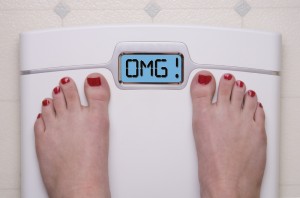To Sleep, Perchance to Avoid Extra Pounds
We often talk about the importance of proper nutrition and fitness as part of a healthy lifestyle. But there is another, equally important element—sleep. Getting enough quality sleep is vital to staying healthy. Most adults need an average of 7.5 hours per night. Getting too little and/or poor quality sleep can lead to weight gain because a lack of sleep can cause your metabolism to work against you.
According to Michael Breus, PhD, author of Beauty Sleep and the clinical director of the sleep division for Arrowhead Health in Glendale, Ariz., it has to do with two nighttime hormones: gherlin and leptin. Gherlin is the hormone that tells you when to eat, and if you are sleep deprived you have more gherlin in your system. Leptin is the hormone that tells you when to stop eating, and you have less leptin when you are sleep deprived. So, you end up eating more and slowing down your metabolism. That’ a recipe for weight gain.
The news may be worse for middle age women. In a recently published study in the International Journal of Obesity, Finnish researchers followed 7,300 40-60 year old adults for 7 years. They found that women who reported significant sleep problems put on more weight than the women who slept well. One third of the women with sleep problems gained an average of 11 pounds.
Interestingly, men did not have the same results. This may be due to the study methodology which involved studying only 1,300 men versus 5,700 women. However, there was another large-scale (35,000+ participants of which 31,000 were men) study conducted in Japan which concluded that short sleep duration was associated with weight gain and the development of obesity over 1 year in men, but not in women. It appears this is an equal-opportunity problem.
Jennifer LaRue Huget, columnist for the Washington Post, recently wrote an article on avoiding foods that hinder sleep. Jennifer interviewed Michael Grandner, a sleep researcher at the University of Pennsylvania’s Center for Sleep and Respiratory Neurobiology, and asked what should be avoided. Here are his responses:
1. Fat
Surprise – the number one culprit is not caffeine. Grandner’s most recent research, published in February’s Sleep Medicine, tracked the diets and sleep habits of 459 women enrolled in the federal government’s Women’s Health Initiative. He tracked several nutrients and found, in summary, “The more fat you ate, the less you slept”.
2. Caffeine
This one is probably obvious. Switch to decaf in the afternoon.
3. Alcohol
While alcohol may help you fall asleep, it disrupts REM sleep, which is an essential component of quality sleep.
And as for the old stand-bys of milk, tea and turkey, these seem to work due to the placebo effect. There isn’t enough credible scientific evidence to prove any of these are truly effective at helping people fall or stay asleep.
Lesson learned – don’t overlook the importance of getting a good night’s rest. It is vital to your overall health. I leave you with this quote from English playwright, Thomas Dekker, Sleep is the golden chain that ties health and our bodies together. Well said.
